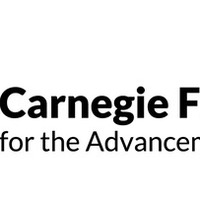Introducing Improvement Research in Education
Item
- Title
- Introducing Improvement Research in Education
- Alternate name
- Chapter 1
- Abstract/Description
-
Improvement research, as described in this handbook, is characterized by coordinated, disciplined methods of iterative inquiry, design, implementation, and evaluation. The notion of working iteratively toward incremental systemic change is central to improvement research and often embedded in routines that organize cycles of design, intervention, and reflection (Cobb et al., 2018; Lewis, 2015). Typically, the work is participatory, with team members from different backgrounds contributing to multiple aspects of the work—design, testing, and evaluation of change.
While the particular methods different models use vary, a common feature is that design and evaluation activities are tightly coordinated with one another, so that evidence from tests of innovations plays an integral role in informing iterative design. Finally, a systemic perspective is fundamental to improvement research: Building on the idea that every system is perfectly designed to produce the results it does, an important first step of teams is to come to see the system as it is and to imagine how it could be (LeMahieu et al., 2017).
Approaches to improvement research include design-based implementation research as enacted in research-practice partnerships (Fishman et al., 2013); improvement science as enacted in networked improvement communities (Bryk et al., 2015; Russell et al., 2017, 2019); interdisciplinary problem solving as enacted in long-term field sites (Donovan et al., 2013); and multi-method analysis and problem solving as enacted in research alliances (Moeller et al., 2018). While the social organization of these approaches vary, each is advanced through arrangements that bring researchers, educational professionals, community members, and other stakeholders together to understand and improve learning and development processes and outcomes. - [Quoted from p. 5]
- Date
- 2022
- Editor
- Peurach, Donald J.
-
 Peurach, Donald J.
Peurach, Donald J.
- Russell, Jennifer Lin
- Cohen-Vogel, Lora
- Penuel, William R.
- Pages
- 1-20
- Publisher
- Rowman & Littlefield Publishers
- Resource type
- en Research/Scholarly Media
- Resource status/form
- en Published Text
- IRE Approach/Concept
- Improvement Science
- Justice
- Equity
- Design-Based Implementation Research (DBIR)
- Networked Improvement Community (NIC)
- Interdisciplinary Problem Solving
- Research Alliance (RA)
- Collaborative Research
- Strategic Education Research Partnership (SERP)
- Community-Based Design Research (CBDR)
- Participatory Action Research (PAR)
- Research Practice Partnership (RPP)
- Community-Engaged Research
- Infrastructure
- Adaptive Integration
- Six Sigma
- Transformative Change/Systems Transformation
- Featured case/project
-
 Chicago Alliance for Equity in Computer Science (CAFÉCS)
Chicago Alliance for Equity in Computer Science (CAFÉCS)
- San Francisco Teacher Leader Fellowship (TLF)
- Un Buen Comienzo (UBC) Improvement Network
- California Tinkering Afterschool Network (CTAN)
- Open access/full-text available
- en No
- ISBN
- 978-1-5381-5234-8
- Other related resources/entities
-
 Spencer Foundation
Spencer Foundation
-
 William T. Grant Foundation
William T. Grant Foundation
-
 Carnegie Foundation for the Advancement of Teaching
Carnegie Foundation for the Advancement of Teaching
- Improvement Scholars Network
-
 The Scholarship of Improvement: Building Community Around an Emerging Tradition of Practice-Focused Research
The Scholarship of Improvement: Building Community Around an Emerging Tradition of Practice-Focused Research
- Oxford Bibliographies [Special Series]: Continuous Improvement in Education
- Improvement Science in Education Special Interest Group (SIG)
- Citation
- Peurach, D. J., & Russell, J. L. (2022). Introducing Improvement Research in Education. In D. J. Peurach, J. L. Russell, L. Cohen-Vogel, & W. R. Penuel (Eds.), The Foundational Handbook on Improvement Research in Education (pp. 1–20). Rowman & Littlefield Publishers. https://rowman.com/ISBN/9781538152348/The-Foundational-Handbook-on-Improvement-Research-in-Education
- Cites
- Research–Practice Partnerships in Education
- Fostering the Sustainability and Scalability of Curriculum Innovations Through Curriculum Design
- Doing With Understanding: Lessons From Research on Problem- and Project-Based Learning
- Tying Knots: Participatory Infrastructuring at Work
- Design-Based Research Within the Constraints of Practice: AlgebraByExample
- Institutional Complexity and Policy Implementation: How Underlying Logics Drive Teacher Interpretations of Reform
- 2014 AERA Distinguished Lecture: Accelerating How We Learn to Improve
- Teacher Agency and Professional Learning: Rethinking Fidelity of Implementation as Multiplicities of Enactment
- Designing for Productive Adaptations of Curriculum Interventions
- Strategic Education Research Partnership
- Design Experimentation and Mutual Appropriation: Two Strategies for University/Community Collaborative After-School Interventions
- A Radical Doctrine: Abolitionist Education in Hard Times
- Bringing Answers to Educators: Guiding Principles for Research Syntheses
- Improvement Versus Transformation
- Absorptive Capacity: A Conceptual Framework for Understanding District Central Office Learning
- “What the Hell Is This, and Who the Hell Are You?” Role and Identity Negotiation in Research-Practice Partnerships
- End-User Development and Meta-design: Foundations for Cultures of Participation
- Pedagogy of the Oppressed
- Diffusion of Innovations in Service Organizations: Systematic Review and Recommendations
- Social Design-Based Experiments: A Utopian Methodology for Understanding New Possibilities for Learning
- Re-designing Infrastructure as a Strategy for Crafting Coherence Across Three Networks Focused on the Implementation of the Next Generation Science Standards
- Community Design Circles: Co-designing Justice and Wellbeing in Family-Community-Research Partnerships
- Rethinking Critical Theory and Qualitative Research
- Contested Terrain: A History of Education Research in the United States, 1890–1990
- Communities of Practice Across Institutions
- What We Need in Education is More Integrity (and Less Fidelity) of Implementation
- Practice-Driven Data: Lessons from Chicago's Approach to Research, Data, and Practice in Education
- Toward a Deeper Understanding of the Diversity Rationale
- Radical Change through Radical Means: Learning Power
- Defining, Conceptualizing, and Measuring Fidelity of Implementation and Its Relationship to Outcomes in K–12 Curriculum Intervention Research
- Humanizing Research: Decolonizing Qualitative Inquiry With Youth and Communities
- Decolonizing Educational Research: From Ownership to Answerability
- Building a Networked Improvement Community to Promote Equitable, Coherent Systems of Science Education: How a State-Level Team Can Support District-Level Change Efforts
- Negotiating Problems of Practice in Research–Practice Design Partnerships
- Analysing Teachers’ Curriculum Implementation From Integrity and Actor-Oriented Perspectives
- Designing Formative Assessment Software With Teachers: An Analysis of the Co-design Process
- The Learning Sciences in a New Era of U.S. Nationalism
- A Theory of Racialized Organizations
- Dignity Affirming Care: A Conceptual Framework for Understanding the Impact of Research-Practice Partnerships
- The Social Organization of Networked Improvement Communities
- Building Equity in Research-Practice Partnerships
- Social Capital and the Reproduction of Inequality: Information Networks among Mexican-Origin High School Students
- Steps Toward an Ecology of Infrastructure: Design and Access for Large Information Spaces
- Building Coherence for Instructional Improvement Through Professional Development: A Design-Based Implementation Research Study
- The Design Tensions Framework
- Research on Schools, Neighborhoods, and Communities: Toward Civic Responsibility
- Research-Practice Partnerships: Building Two-Way Streets of Engagement
- Rematriating Curriculum Studies
- Rethinking Race and Power in Design-Based Research: Reflections from the Field
- Wicked Problems, Knowledge Challenges, and Collaborative Capacity Builders in Network Settings
- Advancing Scientific Knowledge Through Participatory Action Research
- Participatory Action Research
- Philosophical Investigations
- Assessing the First Two Years’ Effectiveness of Statway®: A Multilevel Model With Propensity Score Matching
- Community Research Collaboratives
Annotations
There are no annotations for this resource.

